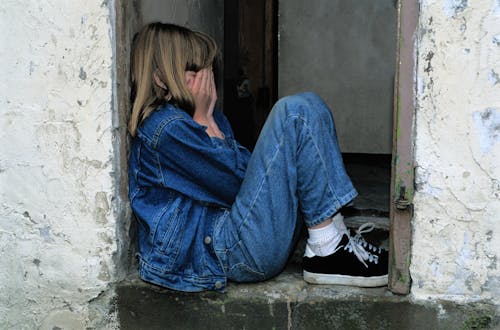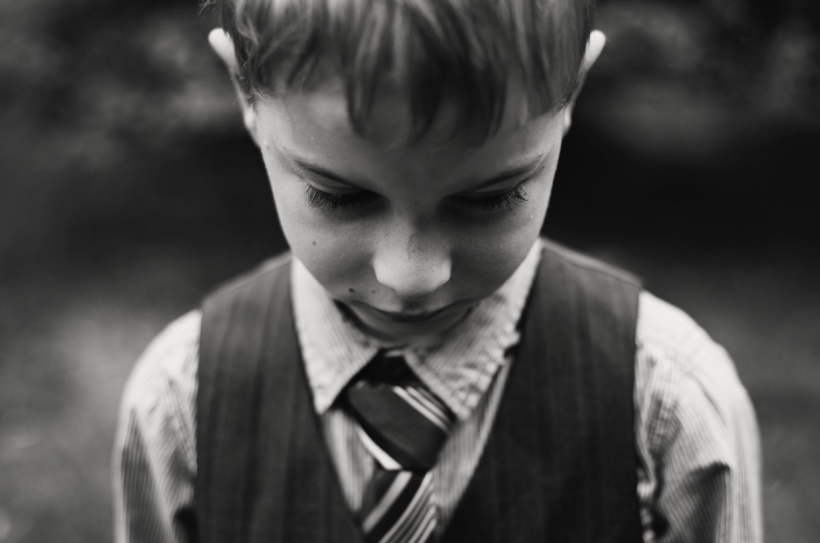‘Depression’ has become an overused word that you can hear buzzing around in all age groups. Be it, new mamas, old-aged parents, or youthful teenagers, you will definitely come across someone proclaiming how depressed they feel.

On the other hand, you will meet a group of people who I personally call the ‘happy bubble dwellers’. These people fail to understand that depression and other mental health problems do exist and need to be acknowledged and cared for.
You may like: COVID-19 lockdown loneliness leads to depressive symptoms in adults: Study
These people negate any discussion on mental health topics and think these are just self-created problems, that are easily controllable. As a parent of young adults or budding teenagers, it is highly important to keep a watch on your children’s mental health. The teen years mark the huge transition from youth into adulthood and with external stressors and surging hormones, they are very vulnerable to mental disorders.
It is important to know that a child might not show straightforward symptoms, nor he will be able to tell you that something is wrong with him. Instead, it will be totally on the parent to explore and pick clues from the child’s normal behavior and routine.
Suggested Article: Turning Away from Parents and Going Towards Friends- A New Walk of Teenagers
Some nonspecific, but important signs to look for include :
Lack of energy:

You may hear this a lot from your teenager, ‘Mum I’m tired, Can we please visit grandma tomorrow?’ and you would just turn a deaf ear, blaming it on his laziness. This doesn’t always mean your son is depressed, chances are, he is just being a normal procrastinating teenager, but if you find him turning down plans more often, and being more lethargic, it is a good idea to talk to him and get him checked for other medical conditions as well as any mental disturbance he could be facing.
Changes in sleep:

Hormonal shifts and normal adolescent sleep patterns can change as the child ages, but if you start noticing very unusual sleep, then take serious notice. Sleeping too much or too less, both are harmful to the growing body and deprives the body of the energy it needs to grow. Changes in sleep patterns are also indicative of certain diseases like thyroid, and therefore, it is very important to take action and start with a friendly talk to explore further.
Concentration

Her teacher says she doesn’t focus in class at all, she is always staring at the walls or scribbling in her notepad’. Does this sound like your 15-year-old daughter’s teacher’s remarks?- If yes it’s time to be more alert! There could be a number of reasons for lack of concentration, study stress, peer pressure, love interest, or simply boredom, which is highly common in adolescents. But in cases of depression, lack of concentration, coupled with many other signs and symptoms could be self-explanatory and calls for further inquiry.
Guilt

Guilt is a crippling emotion. It brings down a person’s morale down to an extent he/she may start having suicidal thoughts. Although to some extent, it is good to feel guilty, especially when you know you have wronged yourself or someone as this is a sign of healthy conscience. But if you see somebody feel guilty or make remorseful remarks about himself all the time, it is important to sit down for a talk. It is a very good indicator that the person is depressed. The constant negative guilty thoughts may sink him into further depression and the vicious cycle continues until made to stop by external help.
Appetite

Teenage is also a time of rapid growth spurts and to accommodate rapid growth, the body asks for more nutrition and hence appetite soars to new levels. If this is the case with your happy-go-lucky, fun-loving, or seemingly content child, there is nothing to worry about, but if you notice your kid turning into a ravenous beast, who is always hungry, along with other signs of depression, it is time to ring your physician and ask for help. This could also be otherwise, so if you see your usually happy kid going on hunger strikes more often, lend your ears and see what is going on with them. Sometimes, all of the above is just a part of growing up, but it is very important to be able to figure out when it is turning from ‘just a phase’ to a serious, but very treatable and manageable condition, called ‘depression’.
References:
● Martha.C.Tompson, Fawn.M.Mcneil, (March 2000), ‘Identifying and treating adolescent depression
https://www.ncbi.nlm.nih.gov/pmc/articles/PMC1070798/
You May Like:
10 Ways Teens Today Are Different From Past Generations.
Every generation is shaped by their socio-political, cultural, and economic environment. This is also what creates the gap between generations, as these factors influence the thinking patterns, goals, and general lifestyle of that generation. Read More:


